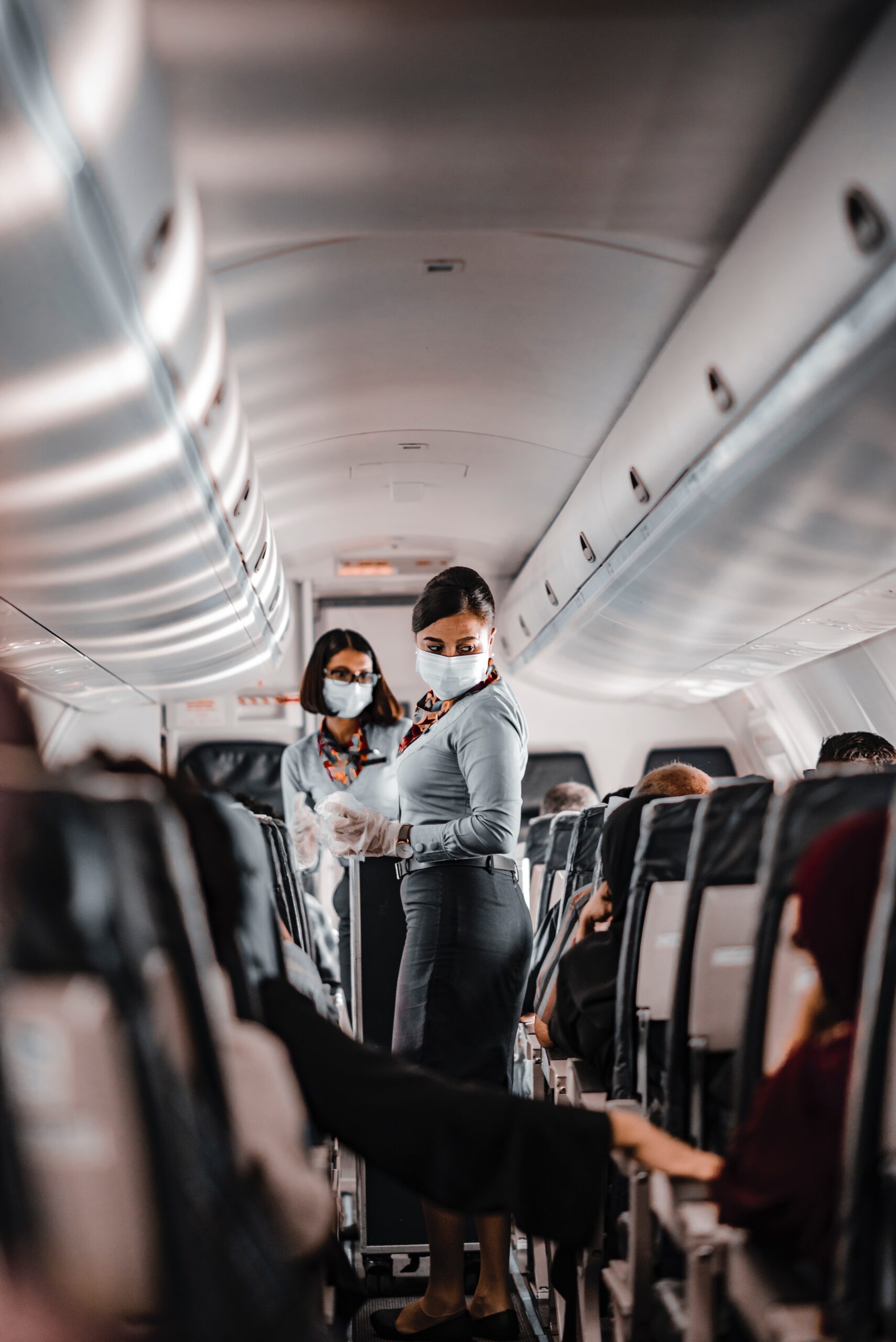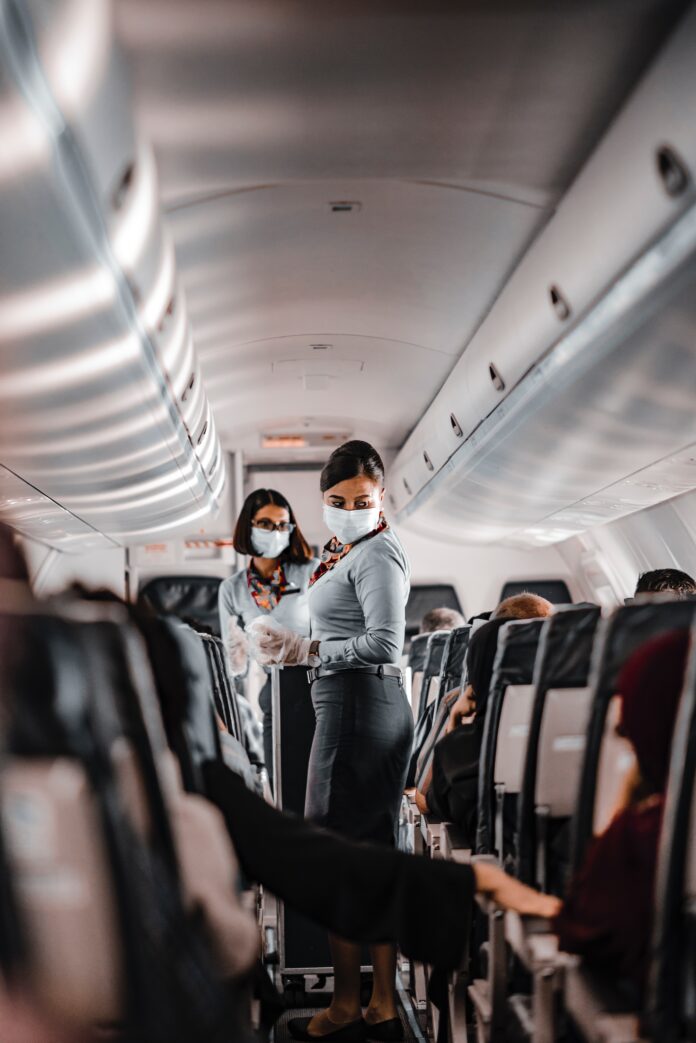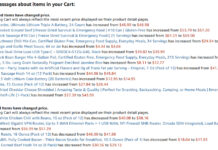It will be interesting to see how much of this spring’s COVID-19 crisis repeats itself as we head into this latest surge which is already worse and shows no sign of slowing down.
Here’s one example: Five meat packing plants have already been shut down. While these shutdowns appear to be shorter than those in the earlier outbreak, it clearly illustrates that vulnerabilities remain in the food supply system.
Meat is only part of the equation; we all remember scenes of dairies dumping milk and farmers plowing under crops while store shelves were empty.
Changes to where Americans buy food and how many meals are eaten outside the home wreaked havoc on food suppliers and processors who could not quickly transition from selling to restaurants and institutions to selling directly to consumers. Today, spending on food at home is 11 percent higher and spending at restaurants and hotels is down 30 percent, according to the Wall Street Journal. As the coronavirus spreads again, lockdowns grow, states limit indoor dining, and weather reduces those willing to eat outdoors, those numbers could worsen. Food outages may again become a possibility.
Hot Spots and Super Spreader Events
Meat packing plants are just one of the hot spots from earlier this year. Prisons, cruise ships, colleges and universities, and convalescent care facilities all saw high infection rates, although deaths varied based on the population’s age and comorbidities. Can we expect infections in these venues again? I expect the answer is a resounding “yes.”
Weddings, funerals, and worship services were also scenes of outbreaks, often due to one or more super-spreaders. How long will it take until the vaccination rate is high enough that you can have 100 people at a wedding, hundreds at a church services, or thousands at a business conference? It might well be another year.
That means the travel and hospitality industry, the wedding industry, international tourism, and everyone who’s job is been dependent on them will continue to suffer for another year. That’s millions of jobs and billions of dollars yanked out of the economy. A $300 weekly unemployment check does not offset the loss of a $35,000 or a $60,000 income. It may not even pay the rent.
The Economic Impact
For many Americans, hunger remains an unwelcome guest, but it is only the first brick in what may be a long, slow collapse. Gainfully employed people who lose their job due to VODI-19 my find themselves thrown from a relatively comfortable life in a home they can call their own to a place where they own nothing but what they can carry on their backs. Today, many unemployed rely on soup kitchens and food banks to feed their children, but tomorrow they may not be able to have a roof over their head. More adult children are living with their parents than ever before, but not everyone has a family that can provide this kind of a safety net.
After dropping from COVID-19 highs, job losses are growing again, sending many to the unemployment line. Businesses are cutting back or closing, large and small retailers and restaurant chains are retreating into bankruptcy protection and leaving suppliers and landlords on the hook for unpaid bills. For consumers, deferred mortgage payments and delayed rents come due and deferred utility bills must be paid, yet there are no jobs and many have no money. Joe Biden may inherit an economy on the cusp of a COVID collapse.
Landlords and Tenants Both Suffer
By January, more than 11 million households will be at least $6,000 behind in rent, according to CNBC. Much of it is owed to small landlords.
For years, small landlords saw their rental property as a form of guaranteed income, a retirement nest egg. Facing months of uncollected rent, that income has flipped to a loss and the nest egg is a monkey on their back. The result will be mom and pop landlords who are forced to sell their properties to large corporate landlords at fire-sale prices. Commercial real estate is no better. For Lease signs are popping up everywhere.
Economic problems like unemployment, foreclosures, bankruptcy, and empty building can lead to social problems like homelessness, crime, and rioting. In 2020, we saw an increase in all three. Chances are, 2021 may see even more of the same.
To Prevail, Plan Ahead
We’ve lived through COVID-19 before. We lived through the Great Recession ten years ago. You should know what to expect. Plan for it.
- Stock up on food to offset shortages of meat, flour, yeast, canned soup, frozen meals and other items in demand for home-cooking.
- Save as much money as you can to help you weather an unexpected layoff or failure of your employer.
- Eliminate unnecessary expenses such as cable TV, multiple steaming services, the gym subscription you never use, your expensive cell phone plan, etc.
- Do things yourself rather than pay others to do them.
- Develop a second income stream to help cushion the blow should your family breadwinner lose their job. This could be pet sitting, dog walking, delivering pizza’s, home sewing, baby sitting, etc.
- Pay off your car loan to reduce your monthly expenses and avoid repossession.
- Look for opportunities to earn income from those who are working at home due to COVID-19. For example, a friend of mine works as a nanny five mornings a week for a couple with a new baby so the parents can work at home without interruptions.
The key is to be flexible. Maybe you have a beautician’s licenses, but if the hair salon is closed, consider something else. Perhaps you can provide customer service via phone for a website that sells home beauty products. Maybe you can do something completely different, like become a personal shopper at Walmart for people who get curbside pickup.
You can let things happen to you, buffeted about like a ship on the ocean, or you can raise your sail and refuse to give in. Be prepared. Take action. Don’t let the coming COVID-19 collapse drag you under.








